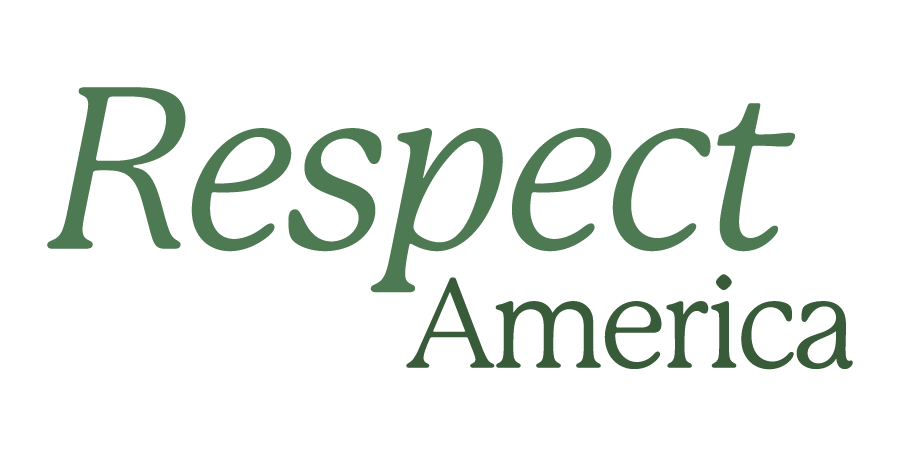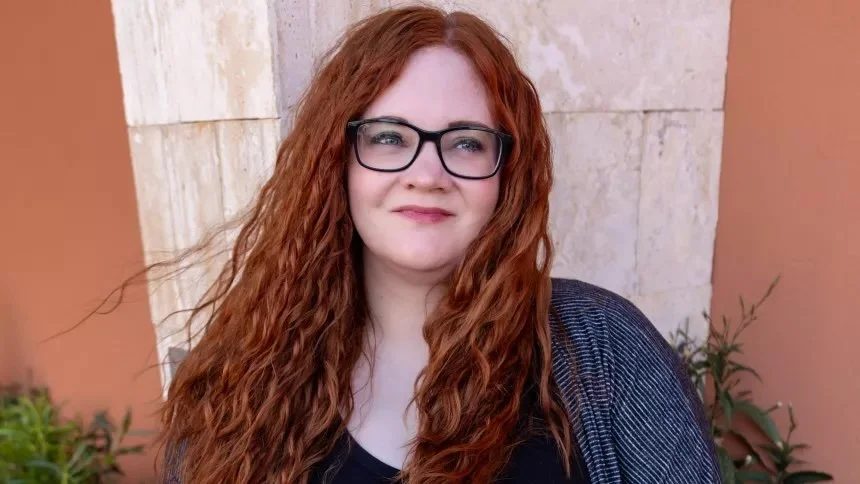An “objectively outrageous” suppression of speech
By: Conner Drigotas
Called to Duty
In August 2024, Rebekah Massie felt called to speak up at a city council meeting in her home of Surprise, Arizona. It wasn’t her first appearance in front of these local lawmakers.
“I was at almost every city council meeting from roughly about the end of February [until the arrest]” she told Respect America in an interview. “It started out as getting sick of my kids being late to school and concern about the safety of my husband commuting to work, so I went to go complain about the roads and try to work with the government.”
Despite her goal of finding collaborative inroads, she quickly earned a reputation as an outspoken advocate against inefficiency and government bloat – which didn’t make her many friends in the ranks of local politicians.
The August 2024 agenda item Massie rose to address included a 4.4% raise for the city attorney – a Mr. Robert W. Wingo – who was reportedly already making a $266,000 salary, and was the second highest paid employee in the city. Rebekah was appalled by the dollar figure, and the tax increases that were funding the city’s growing bureaucracy.
“They're spending way too much money on staff. It's a very top-heavy organization.” She says, “Three months prior, they passed a sales tax increase, and I spoke out against that because of what they were paying people. They're telling me that they can't cut expenses. I'm exasperated. And if I'm showing up in person, and I'm repeatedly showing up in person, I'm almost at the point of desperation.”
Rebekah attended the meeting with her ten-year old daughter, to show her the importance of civil engagement. With attorney Wingo sitting in the front row, just feet away from the podium, Massie began to lay out the various reasons she opposed his raise: outstanding FOIA requests awaiting Wingo’s legal review, his disproportionately high salary compared to other cities, and alleged disregard for Arizona’s revised statutes. She was also disappointed in his failure to bring charges or otherwise work to hold city council member Aly Cline accountable for ripping down flyers Ms. Massie had posted to promote a new mayoral candidate and Massie’s website, which was critical of the Surprise government.
As Massie laid out her arguments, Mayor Skip Hall broke in with comments of his own: “I’ve got to interrupt you here,” he said, then read from a piece of paper he had on the desk in front of him.
Surprise, Arizona, has a rule, he explained, that bans residents from making “complaints against any employee of the City or members of the body” during public comment, and told Massie that she has been warned and should stop “attacking the city attorney personally.”
“This is all factual information,” Massie replied.
“It doesn’t matter,” said Mayor Hall.
The verbal sparring briefly continued, focused on the constitutionality of such a ban on speech in a public forum. “Do you want to be escorted out?” Hall asked. “Because that’s what’s going to happen, and it’s going to happen in the future.
Mayor Hall then ordered the officer on duty, a Mr. Shernicoff, to remove Ms. Massie from the room. Rebekah reminded him that her daughter was present, but Hall remained unmoved. Moments later, Officer Shernicoff grabbed Ms. Massie and forcefully removed her from the room. The city council continued on with business as if nothing had happened. Mayor Hall thought he had successfully squashed dissent. He was unaware that he had ignited a media firestorm that is still burning to this day.
Protect and Serve
In hindsight, Rebekah believes the situation may have been intentionally contrived by Surprise officials tired of facing criticism. She points to the written policy already being in the Mayor’s hand when she rose to speak, the officer called to remove her being someone not ordinarily assigned to work at city council meetings, and the inaction of Mr. Wingo who, she argues, should have known and advised the Council that the policy and retribution for speaking were clear violations of her constitutional rights.
“Honest to God. It's the only logical conclusion that I can come up with,” she says, “it was one thing after another, all perfectly aligned.”
Body camera footage of the event shows Officer Shernicoff’s point of view as he approaches Ms. Massie, attempts to physically restrain her, and eventually places her under arrest in the hallway outside the council chambers as the body moves on with other business.
“You cannot detain me for expressing my First Amendment rights” Massie calls out at one point after allegedly being shoved to the ground. The video shows her being placed in handcuffs anyways, separated from her daughter, and issued a citation for trespassing at the city council meeting.
“There is no framework and no parameter that I can rationalize this and have it follow any logical thought progression,” Massie says. Speaking about the use of force by Surprise officers, “You're not finding Bin Laden in the middle of the desert. I'm not a bad person. I'm somebody who has [peacefully] pointed criticisms of the government for a lot of different reasons.”
Seeking Justice
Surprise, Arizona, officials made quick inroads to close ranks in the days following Massie’s arrest. Chief of Police Benny Pina released a video praising Officer Shernicoff for acting “with absolute speed to carry out the mission as directed that evening,” and Mayor Hall refused to offer further comment to the media.
As video of Rebekah’s arrest spread, near universal condemnation of the city’s policy and officials' actions began to roll in. Eventually the tide turned – leading to the council repealing the criticism policy in September, 2024.
The hits kept coming. In October, 2024, criminal proceedings saw Surprise prosecutors recuse themselves from the case against Massie, citing a conflict of interest. State Judge Gerald Williams then dropped the criminal trespassing charge just a day after hearing arguments, dismissing the case with prejudice and writing: “No branch of any federal, state, or local government in this country should ever attempt to control the content of political speech. In this case, the government did so in a manner that was objectively outrageous.”
Though she has successfully crossed the first hurdles to securing justice, it has not been easy for Rebekah, and there is still more to come.
“It's almost like I’m continually going through the grieving process. At the end of the day, we're all human, and we're all flawed. I needed to get this off my chest, and I needed people to hear it because it's important. I have to essentially put on a brave face, not just for my children, but for everybody.”
Massie has also accepted the help of The Foundation for Individual Rights and Expression (FIRE), a nonprofit with a mission to “defend and sustain the individual rights of all Americans to free speech and free thought.” With the help of their legal team, Massie filed a civil lawsuit against the city as an entity, She also filed a lawsuit against Skip Hall for enforcing the Council Criticism policy and directing police to detail Rebekah, and Officer Steven Shernicoff for assault, battery, and intentional or reckless infliction of emotional distress.
“If I'm here and I'm the loudest voice in the room, it's because nobody else is speaking up. I still think that there are some genuinely good human beings within the city government, however, they are good humans who have essentially become corrupted. Free speech still matters in America, and I can’t tell you what a relief it is to have people on my side standing up for our rights with me.”


